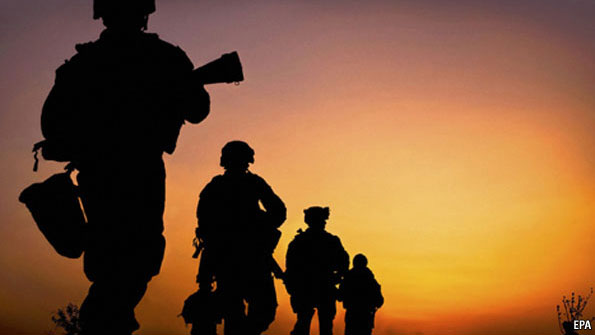Wednesday, Jul 14, 2010 09:15 ET
The motive behind whistle-blower prosecutions
One of the more flamboyant aspects of the Bradley Manning arrest was the claim that he had leaked to WikiLeaks 250,000 pages of “diplomatic cables.” Those were the documents which anonymous government officials pointed to when telling The Daily Beast‘s Philip Shenon that the leaks “could do serious damage to national security.” Most commentary on the Manning case has tacitly assumed that the leaking of “diplomatic cables” would jeopardize national security secrets. But a new BBC article today contains this quote from former UK intelligence analyst Crispin Black:
Diplomatic cables don’t usually contain huge secrets but they do contain the unvarnished truth so in a sense they can be even more embarrassing than secrets.
As usual, government concern over leaks is about avoiding embarrassment and other accountability; national security harm is but the fear-mongering excuse. Similarly, a new Washington Post article today details the Obama DOJ’s prosecution of NSA whistle blower Thomas Drake, whose disclosures resulted in no claimed national security harm, but rather, was evidence of “waste, mismanagement and a willingness to compromise Americans’ privacy without enhancing security” (leaked only after his use of the official channels resulted in nothing, as usual). As is true for virtually every whistle blower prosecution or threatened prosecution, there is no actual national security harm identified from that leak. Other than when a covert agent’s identity is blown (as happened to Valerie Plame), has anyone ever heard of any actual, concrete national security harm from any of the high-profile leak cases, whether it be the illegal NSA eavesdropping program, the network of CIA black sites, the release of the Apache helicopter attack video, or the corruption and privacy infringements revealed by Drake?
The Post today quotes Obama DOJ spokesman Matthew Miller’s justification for the administration’s escalated war on whistle blowers as follows: “We have consistently said that leaks and mishandling of classified information are matters that we take extremely seriously.” There’s no doubt that they take such acts “extremely seriously,” but what’s the reason for it? There’s been no identified harm to national security from any of these leaks.
What these leaks have actually accomplished is to “embarrass” the Government by revealing what the intelligence analyst quoted by the BBC calls “the unvarnished truth” about the illegal, corrupt, and embarrassing acts it undertakes. In all of these cases where the Obama DOJ is persecuting whistle blowers, they’re punishing the greatest sin there is — exposure of high-level government wrongdoing — not harm to national security. Amazingly, that was even the explicit rationale used by Obama when he and the Democratic Congress re-wrote FOIA to shield photographs of detainee abuse from court-ordered disclosure: these photos would reflect poorly on the U.S. government and therefore harm national security. And, of course, the administration’s repeated, Bush-replicating invocation of the “state secrets” privilege has been justified with vague appeals to National Security but actually motivated by a desire to shield government crimes of detention, surveillance and interrogation from disclosure and accountability.
Most of what the U.S. Government does of any significance — literally — occurs behind a vast wall of secrecy, completely unknown to the citizenry. While a small portion of that is legitimately classified, these whistle blower prosecutions and other disclosure controversies demonstrate that the vast majority of this secrecy is devoted to avoiding embarrassment and accountability. It has nothing to do with “national security” — one of the all-justifying terms (along with Terrorism) for what the Government does. Secrecy is the religion of the political class, and the prime enabler of its corruption. That’s why whistle blowers are among the most hated heretics. They’re one of the very few classes of people able to shed a small amount of light on what actually takes place.
The great irony is that there is a perfect inverse relationship between the secrecy powers of the Government (which rapidly increases) and the privacy rights of citizens (which erodes just as rapidly). The citizenry meekly acquiesces to the notion that it must sacrifice more and more privacy to the Government in order to deter and expose criminality, corruption and other dangerous acts of private citizens, yet refuses to apply that same rationale to demand greater transparency from the Government itself. The Government (and its private corporate partners) know more and more about citizens, while citizens know less and less about the actions of the government-corporate axis which governs them.
The reason Iceland is poised to enact an unprecedentedly potent shield for whistle blowers and other leakers is that they realized that the oozing elite corruption that led to their financial collapse was caused by rampant secrecy. They realized that unauthorized leaks are the most effective check against the crimes of the powerful, which is precisely why such leaks in the U.S. are targeted with such a fury. What possible valid reason is there to keep classified that Apache attack video, or evidence of our civilian casualties in Afghanistan, or massive private contractor corruption at the NSA, or Bush crimes on torture and eavesdropping, or the lending programs of the Fed? The real criminals are not those who are leaking embarrassing information about corruption and wrongdoing — those whom the Obama DOJ is prosecuting with an unprecedented vengeance — but rather the political officials who are misusing powers of secrecy to hide information for which there is no legitimate secrecy basis.
